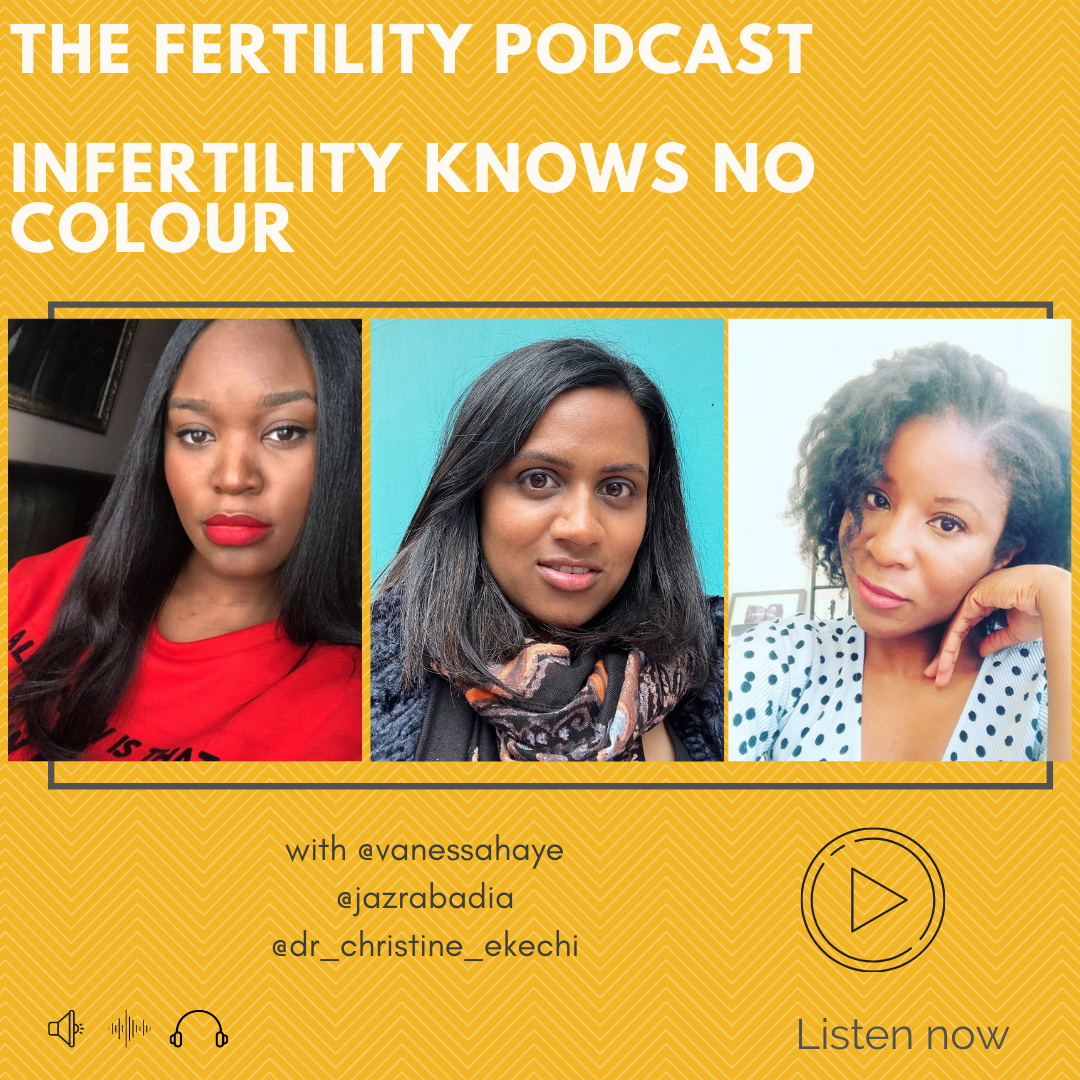FACT – Infertility knows no colour, meaning that infertility doesn’t care about the colour of your skin.
Our three guests this week talk about the impact of fertility education or the lack of, within black and Asian communities and the work they are doing to raise awareness of where people can learn more and also get support.
Vanessa Haye, described how multi-layered up fertility issues were with other social-cultural things like faith and how “When you are trying to build a family, you feel like everyone else is affected. Your whole family are invested and I felt it was too much pressure to go through, so it took me a while to talk about it. Then you have to deal with comments such as ‘Why you going through IVF it’s not something that we do’ Vanessa has had a lot of conversations in light of an article she was involved with in Metro with people thanking her for sharing it. People saying they were also going through it. Check out the article here.
Vanessa said how people talking back to her and she then seeing other black women bloggers starting the conversation helped her feel less alone. It was reciprocal and reassuring. She explained how ‘If there is already a perception in a community and you aren’t seeing people that look like you talking about it further breeds the idea that this isn’t the type of thing you might go through.
Our expert Dr Christine Eketchi a consultant gynaecologist at Imperial College NHS Trust and a spokesperson for Racial Equality at the RCOG highlighted the importance of not defining women by their ethnicity and putting them into one defined group as their reasons for why they have poorer outcomes following fertility treatment is very different.
For example, Asian women are more likely to ovulatory disorders and black women are more likely to have tubal disorders. Asian women are more likely to present earlier for fertility treatment than Black women. Therefore, it is clear why these two groups need to be separated and the need for less reliance on skin colour.
When considering poor fertility or pregnancy outcomes, Christine talks about the need to be more proactive before we even get to the point of struggling with fertility. She touches on the lack of awareness, stigma and taboo as well as general assumptions. Women need more knowledge so that they can seek interventions earlier to protect their outcomes – such as sexually transmitted infections, endometriosis, and fibroids. We still have a lot of work to do, in terms of reaching people who might not be aware of the communities that exist online which is why we hope that if you are reading this blog, you will share it.
Our final guest Jaz Rabadia talked about being an Asian woman struggling with infertility and pregnancy loss. Jaz shares how difficult it was to start talking as ‘in the Asian community, it’s never your own story but someone else’s. It’s not only personal to you but personal also to your mother-in-Law for example and other members of the extended family. Everyone has an opinion and gossip, combined with taboo, blame and shame, is rife. She also explained how Fertility education is not discussed in the home and Jaz says that even now, despite how vocal she is on the subject, many of her friends are still finding out about fertility now when it is often so very late.
We must keep this conversation going, so if you know someone who would benefit, to hear this podcast – please do share. They can easily subscribe here.


